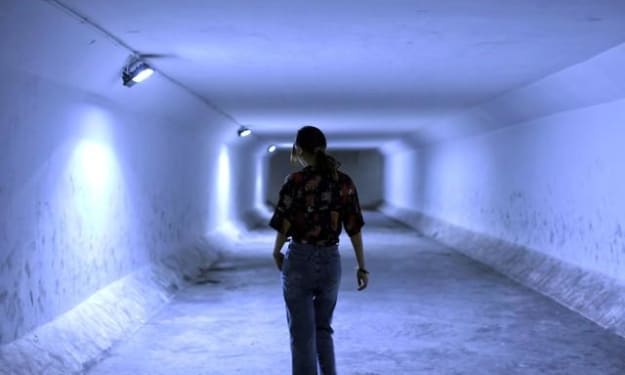Recognizable Symptoms of Bipolar Depression
Though not all symptoms are actually able to be seen visibly, the most recognizable symptoms of bipolar depression can help you figure out what's really going on with your moods.

Prior to being diagnosed with a hormone disorder, doctors who I went to were completely and totally convinced that I was bipolar. I can totally see why they thought I was; the hormone disorder I had mimicked it perfectly — with the one exception of having physical symptoms as well.
From my days spent as a "bipolar" person, I've learned that there are many recognizable symptoms of bipolar depression in people which tend to go untreated, undiagnosed, or otherwise brushed under the carpet. People who have bipolar depression are suffering, and they could get help if they addressed their concerns with the right doctor.
If you notice these symptoms, please consider going to a doctor. You might have bipolar depression.
You find yourself switching between being really happy and really depressed — or just numb to really depressed.

There are really two kinds of bipolar depression — manic-depression and cyclothymia.
Manic depression has many of the most recognizable symptoms of bipolar depression. In happy stages of the cycle, you're super happy, hyperenergetic, get a rush of thoughts going to your head, and may even get delusional to the point that you think you have superpowers. This is called mania, and it's the classic "high" people associate with bipolar depression.
Some also might get obsessive during their manic phases — often to the point that they may act like they have OCD.
When someone gets into the depressive cycles of manic-depression, they may be sluggish, unmotivated, increasingly insecure, mopey, or even find themselves bursting into tears over small matters. In other words, they display classic signs of depression.
With cyclothymia, the cycles are similar. However, mania symptoms are way more muted than with manic depression. So, rather than be super happy to the point of delusions, they may end up just feeling numb. However, they may still dip down into depression like a typical manic-depressive individual.
You get moody for no reason, and often feel like you need to make up a reason to justify your mood changes.

Bipolar depression is a chemical imbalance in your brain, which means that the mood swings you're feeling aren't actually caused by life issues. They're all just chemically caused, with very few actually being triggered by life problems.
A common thing bipolar people might do is make a big deal out of a small problem because they can't explain why they feel terrible. It's their way of trying to feel like they are being reasonable, even when they know they're not.
Your weight, diet, and sleep patterns go through extreme cycles.

Do you notice really massive fluctuations in your eating, sleeping, and activity patterns throughout the month? If you notice yourself sleeping and eating less during manic episodes, and eating more and sleeping more during your depressive periods, you could have bipolar syndrome.
Physically speaking, rapidly changing weight and sleep patterns are pretty recognizable signs of bipolar depression. Many doctors report that people who have particularly longer cycles tend to gain and lose a lot of weight during their manic-depressive switches. This is because their mood swings tend to make them pick up different lifestyle choices.
People have told you that you are impulsive, unpredictable, unreliable, or just "very difficult to know how to handle."

The funny thing about being bipolar is that you often might not pick up on the recognizable symptoms of bipolar depression when they're actually happening to you. This is because it's really hard to see how you're acting when you're in that kind of state of mind.
If you regularly have lots of people tell you that you're really impulsive or unpredictable, it could be a sign that you're actually bipolar. This is doubly true if they've mentioned that it's alienating you from others.
You can't control your emotions easily, or you often wonder how others manage to stay so mellow.

Speaking as someone who regularly had outbursts due to a bipolar-like syndrome, I couldn't understand how so many others seemingly mastered the Herculean task of managing uncontrollable rage and sadness. I just couldn't do it.
So, I always found myself irritable and angry. And then, I'd wonder why everyone else seemed so calm, sane, and normal all the time. That was when I realized something was wrong — and it's one of the most recognizable symptoms of bipolar depression I personally had.
If you feel something's wrong, talk to someone.
It's okay to get help if you're displaying some of the more alarming and recognizable symptoms of bipolar depression. Asking for help doesn't make you weak; it makes you responsible for doing the right thing for your particular situation.
About the Creator
Ossiana Tepfenhart
Ossiana Tepfenhart is a writer based out of New Jersey. This is her work account. She loves gifts and tips, so if you like something, tip her!






Comments
There are no comments for this story
Be the first to respond and start the conversation.